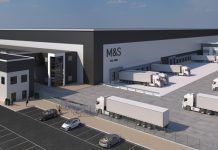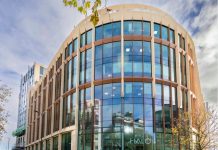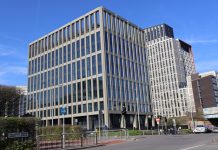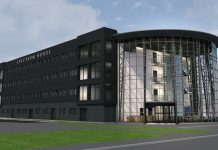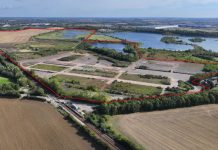The landscape of office space is undergoing a significant transformation, driven by evolving work patterns, technological advancements, and changing employee preferences. Flexible office space, or “flex space,” is at the forefront of this revolution, offering businesses the agility they need to thrive in a dynamic environment.
Charles Warrack, Partner at leading property consultancy Fisher German who is based at the firm’s Birmingham office, discusses the future of flex space and its implications for the workplace:
From the occupiers and landlords that I regularly speak to the trend is clear: employees now split their time between offices and home, necessitating a more flexible approach to workspace from employers. Flex space meets this need by providing on-demand access to office facilities, allowing companies to scale their space requirements up or down based on their current needs.
Flexibility is a key driver behind the adoption of such accommodation. Traditional long-term leases often come with high upfront costs and inflexible terms. In contrast, flex spaces offer flexibility albeit at a premium rent. This model is particularly beneficial for start-ups and SMEs, which can avoid the financial burden of long-term commitments over two to three years.
Flex spaces are designed to enhance employees’ experiences by offering a variety of work environments that cater to different needs. From quiet zones for focused work to collaborative areas for team meetings, these spaces provide employees with the flexibility to choose where and how they work. This adaptability can lead to increased productivity and job satisfaction, and actually encourage more people to work in the office instead of solely from home.
The future of flex space is closely tied to technological advancements. Smart office solutions, such as AI-driven management systems, are becoming integral to flex spaces. These technologies enable seamless booking of workspaces, efficient energy management, and enhanced security, creating a more efficient and user-friendly environment.
Sustainability is an important concern for businesses and employees alike. Flex spaces are increasingly incorporating green building practices and sustainable design elements. From energy-efficient lighting to recycling programmes, these initiatives not only reduce the environmental impact but also appeal to occupiers and employees where ESG credentials are important.
Landlords and investors are playing a crucial role in the evolution of flex spaces. Many are incorporating flexible options into their portfolios to meet tenant demands.
The future of flex space is strong, with continued growth and innovation on the horizon. As businesses increasingly prioritise flexibility and employee well-being, the demand for adaptable office solutions will rise.
Flex spaces will continue to evolve, integrating new technologies and sustainable practices to meet the changing needs of the modern workforce. Examples include fitting showers, cycle storage and maintenance facilities. Other facilities such as coffee shops, Zoom booths and state-of-the-art meeting rooms/town hall areas are important considerations for recruitment and retention.
I have also noticed of late that some occupiers are starting to focus on ‘value for money’. This does not mean that they are looking for budget space but rather offices that work well both functionally and financially. I believe that this trend will continue alongside the more familiar flight to quality that has been witnessed in the last three or four years.
The future of flexible office space is bright, driven by the adaptability, cost efficiency, and enhanced employee experiences. As the workplace continues to evolve, flex spaces will play a pivotal role in shaping the future of work, offering businesses the agility they need to succeed in an ever-changing world.
What is clear though is that where companies are looking for longevity within a location there comes a point after two or three years when flex space becomes more expensive than taking offices on at more traditional lease terms of three to five years.
If an occupier can commit for longer than two, certainly three-year lease term, it is exponentially much cheaper to do so by taking accommodation on conventional lease terms rather than paying a premium for the flexibility of a serviced office.
The trend for flex space is an important part of the market because it very much drives the start-up economy of the city centre, and those firms and organisations will become key parts of the city’s economy in years to come.

